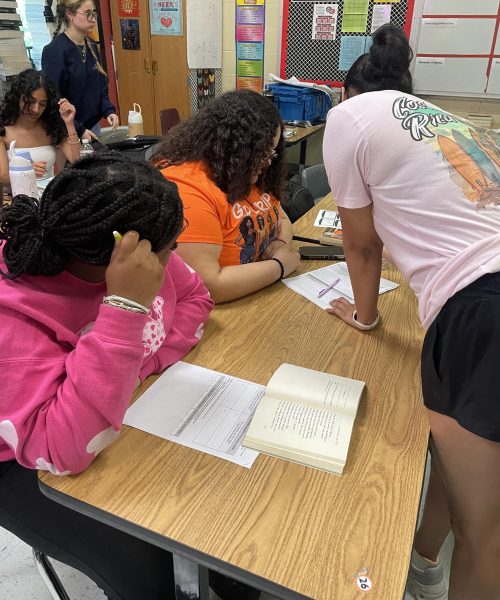Voting Rights for Felons in Kentucky
At a recent CNN town hall, junior Senator Bernie Sanders from Vermont was asked a question that has generated a great deal of discussion.
Senator Bernie Sanders of Vermont responded to a question about the loss of voting rights due to having a criminal record.
When Harvard student Anne Carlstein asked the Senator “…would you support enfranchising people like the Boston Marathon bomber, a convicted terrorist and murder?” Sen. Sanders took the unpopular stance in the debate.
He said that he believes that all previous and current felons should have the right to vote-regardless of how violent the crime may be.
Most Democrats have sided against it.
The debate and controversy around felony disenfranchisement have posed a vital question: if our government is willing to strip away our most basic right- on which our country was founded on, then where will they stop?
Regardless if those rights are restored for those who are currently serving time or not, there are 12 states, including Kentucky, that do not restore voting rights even after the sentence has been served.
14 states, as well as the District of Columbia, restore voting rights after the sentence has been served. 22 states restore voting rights after a period of time after their sentence, usually parole or probation.
According to The Sentencing Project, 6.1 million Americans can’t vote due to a criminal conviction. This is a pressing matter to millions of Americans and Dunbar students alike.
We had a chance to talk to a Dunbar student whose mother lost her voting rights due to a marijuana possession charge. We decided to keep the student’s identity anonymous due to the sensitivity of the subject.
“It has been 20 plus years, and she’s worked her butt off every day. She gets everything done like the rest of us, but they won’t let her vote” the student said.
Regarding the sentence, she had completed a marijuana course and, apparently, did everything required of her by the judge.
While talking about the subject we discovered that a good portion of the student’s family does not have the right to vote due to crimes committed decades ago.
In the state of Kentucky, there is a process that can restore voting rights to the individual through an application that has to be signed by the Governor.
Although that process is available, it is time-consuming to the point where it discourages those who served their sentence.
We wondered if the student’s mother tried to go through with that process.
“She tried. But it became too long of a process to get one small charge cleared and to have her voting rights restored. Since the charge happened so long ago, at this point she’s decided not to care anymore” the student said.
Kentucky is currently facing a federal lawsuit by the Fair Elections Center and the Kentucky Equal Justice Center regarding the state’s current felon voting rights restoration process.
Now in Kentucky, nearly 9% of residents, and 26% of African-American residents have their voting rights stripped due to previous convictions.
Millions have lost their rights to vote but don’t our government’s decisions directly impact them? Although we may side with Senator Sanders and take the unpopular stance on this matter, we believe that this is not only outright wrong but also unconstitutional.
For many Dunbar students, this hits close to home.

Hi there! My name is Victoria Bravo, I am an Editor-in-Chief, I love hiking, and I hate ham. I oversee our writing department and I supervise all articles...

This is my third year on staff. Journalism has always been an interest of mine since eighth grade and now that I am a senior I have been looking at it...



























